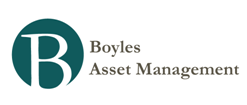Money and Finance
Link to report: Deleveraging, What Deleveraging?
Related article: We are trapped in a cycle of credit booms - by Martin Wolf
- The Secret Of Bridgewater's Success Is In Its Understanding Of The Recession
Found via Canadian Value Investor. The Bridgewater view may be summarized like this:Business and market cycles occur every 5 to 8 years, and may be addressed by policy makers with a typical mix of fiscal and monetary policy.What Bridgewater calls Long...
- Bridgewater Q2 Letter: Outlook And Markets Discussion
Via Zero Hedge. The developed world remains mired in the deleveraging phase of the long-term debt cycle. The European deleveraging has been badly managed and is escalating, bringing Europe closer to either a debt implosion or a monetization and currency...
- The Economy Can’t Grow With Debt - By Carmen M. Reinhart And Kenneth S. Rogoff
As public debt in advanced countries reaches levels not seen since the end of World War II, there is considerable debate about the urgency of taming deficits with the aim of stabilizing and ultimately reducing debt as a percentage of gross domestic product....
- Hussman Weekly Market Comment: Extend And Pretend
Regardless of whether the U.S. banking system would not presently be able to meet its liabilities with its assets, there is another question: assuming that banks are allowed to extend and pretend for a long enough period of time, will they ultimately...
- Frbsf Economic Letter: U.s. Household Deleveraging And Future Consumption Growth
Thanks to Matt and Mike for passing this along. It seems the deleveraging process may take longer and be more painful than most people think (and certainly longer and more painful than much of the media portrays…..surprise, surprise). U.S. household...
Money and Finance
Deleveraging, What Deleveraging? - The 16th Geneva Report on the World Economy
Link to report: Deleveraging, What Deleveraging?
It is widely accepted that high levels of debt (of various forms) have played a central role in the 2008-09 global financial crisis, the 2010-12 euro crisis and many previous crisis episodes. The adverse macroeconomic impact of deleveraging also helps to explain the slow pace of recovery among the advanced economies in recent years, while the post-2009 surge in debt accumulation in a number of emerging markets (especially China) raises the prospect of a new wave of debt-related crises unless corrective policies are implemented.
The 16th Geneva Report on the World Economy provides a multi-dimensional perspective on leverage for both advanced and emerging economies. The report’s comprehensive approach includes both public and private debt, with the latter broken down on sectoral lines (households, non-financial corporates, financial sector). It emphasises the macroeconomic impact of leverage, with a sharp distinction between ‘normal’ recessions and the long-lasting impact on output generated by excessive leverage and financial crises.
The report shows that the world has not yet begun to de-lever and global debt ratios are breaking new highs. At the same time, in a poisonous combination, world underlying growth and inflation are also lower than previously expected, reducing global debt capacity.
The authors argue that central banks in advanced economies should be slow to raise interest rates, given the fragile deleveraging process. Moreover, the European Central Bank should pursue an aggressive policy of quantitative easing in order to fulfill its mandate of price stability while fostering debt stabilisation and easing credit conditions.
However, successful exit from a leverage trap also includes appropriate fiscal and macro-prudential policies, together with the restructuring of private-sector (bank, household, corporate) debt and sovereign debt where required. Furthermore, given the risks and costs associated with excessive leverage, the authors argue that more needs to be done to improve resilience to debt shocks and discourage excessive debt accumulation..................
Related article: We are trapped in a cycle of credit booms - by Martin Wolf
- The Secret Of Bridgewater's Success Is In Its Understanding Of The Recession
Found via Canadian Value Investor. The Bridgewater view may be summarized like this:Business and market cycles occur every 5 to 8 years, and may be addressed by policy makers with a typical mix of fiscal and monetary policy.What Bridgewater calls Long...
- Bridgewater Q2 Letter: Outlook And Markets Discussion
Via Zero Hedge. The developed world remains mired in the deleveraging phase of the long-term debt cycle. The European deleveraging has been badly managed and is escalating, bringing Europe closer to either a debt implosion or a monetization and currency...
- The Economy Can’t Grow With Debt - By Carmen M. Reinhart And Kenneth S. Rogoff
As public debt in advanced countries reaches levels not seen since the end of World War II, there is considerable debate about the urgency of taming deficits with the aim of stabilizing and ultimately reducing debt as a percentage of gross domestic product....
- Hussman Weekly Market Comment: Extend And Pretend
Regardless of whether the U.S. banking system would not presently be able to meet its liabilities with its assets, there is another question: assuming that banks are allowed to extend and pretend for a long enough period of time, will they ultimately...
- Frbsf Economic Letter: U.s. Household Deleveraging And Future Consumption Growth
Thanks to Matt and Mike for passing this along. It seems the deleveraging process may take longer and be more painful than most people think (and certainly longer and more painful than much of the media portrays…..surprise, surprise). U.S. household...

